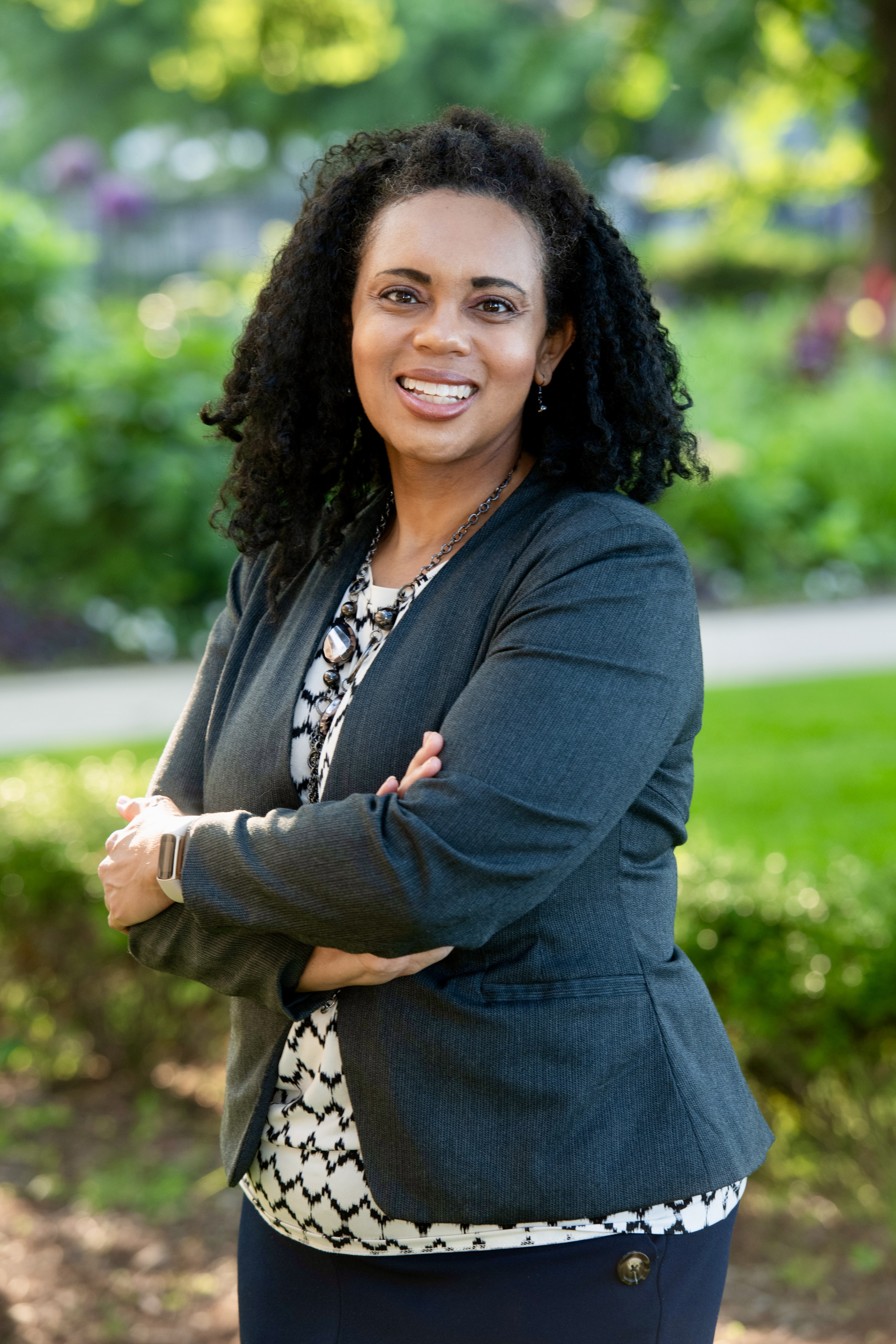Congratulations to Marquita Lewis, PhD on Her R01 Research Grant!

By: Julie A. Bednark
November 26, 2024
We are thrilled to announce Marquita Lewis, PhD, Assistant Professor in the Northwestern University Feinberg School of Medicine Department of Medical Social Sciences (MSS), has received R01 funding from the National Institute for Nursing Research (NINR) for her innovative research project, ”Designing for sustainability: co-designing and testing the efficacy of a web-based toolkit to improve cancer-related emotional distress and anxiety for rural older cancer survivors,” which addresses critical healthcare challenges faced by rural older cancer survivors and their caregivers. This work not only speaks to her dedication to improving healthcare equity but is also a demonstration of her leadership in designing tools that resonate with underserved populations. MSS Professor Sophia Garcia, PhD and Melissa Simon, MD, MPH, Professor in the Department of Obstetrics & Gynecology and secondary faculty in MSS, are co-investigators on the project.
The Vision Behind CONNECT
The centerpiece of Lewis’ research is a thoughtfully designed website tailored to the unique needs of rural older cancer survivors. While a website might sound simple, its true value lies in its user-centered design. By actively involving end users—cancer survivors, caregivers, and healthcare providers—in the co-development process, the project ensures that the platform is both practical and accessible for the community it serves.
Lewis and her team are employing a co-design methodology that elevates the role of end users beyond consultation to full-fledged co-designer experts with her research team. This approach ensures that the tool is not just a technological solution but also a reflection of the real-world needs and preferences of its users.
The Goals of the Study
The CONNECT study has three primary aims:
1. Finalize the CONNECT design.
Building upon an existing prototype, the team will use a co-design approach to refine CONNECT and include synchronous caregiver communication functions as suggested in earlier usability testing.
2. Test the efficacy of CONNECT in a 2-arm randomized control trial.
The team will recruit rural older cancer survivor and caregiver dyads to test CONNECT’S efficacy to reduce levels of cancer-related distress and improve digital literacy for rural older cancer survivors compared to rural older cancer survivors receiving usual care.
3. Explore factors that may impact sustainability of CONNECT.
A key innovation of the study is its focus on factors of the CONNECT tool sustainability. Unlike traditional models that delay these considerations, Lewis’ research begins by exploring what factors contribute to the long-term usability and relevance of digital tools for this population. By proactively planning for future iterations, the project aims to avoid obsolescence and maximize its impact.
Why This Matters
Rural older adults are among the most underserved groups in research and digital health tool innovation. With limited access to healthcare facilities and rapid shifts toward telehealth, these individuals face significant barriers to care. Lewis aptly described this challenge as rural residents being "thrown into the deep end of the technology pool" during the COVID-19 pandemic, often without the necessary support to navigate it. CONNECT represents a metaphorical life jacket, designed to ensure that these communities are not left behind in the digital age. By addressing usability challenges and fostering a sense of safety and trust in digital tools, the project stands to make a lasting impact on rural healthcare.
Looking Ahead
Lewis’ research doesn't just stop at addressing current gaps—it looks to the future. By integrating insights from patients, caregivers, and healthcare providers, the project is setting the stage for a dynamic and evolving resource that remains relevant for years to come.
Lewis reflects, “Given the unforeseen changes in our healthcare funding priorities and initiatives, I am grateful for the foresight of NINR to rapidly publish a RFA putting health equity in the forefront. I'm grateful that my scientific community saw the importance of addressing rural disparities. I'm grateful for the opportunity to work with a team of amazing folks to move the needle in rural health. Last, I'm so grateful to continue to do work that is divinely connected to my purpose and passion.”
Congratulations again, Marquita Lewis! Your impactful work inspires us all, and we look forward to seeing how CONNECT transforms healthcare access and equity for rural older cancer survivors. Stay tuned for updates on this exciting project!